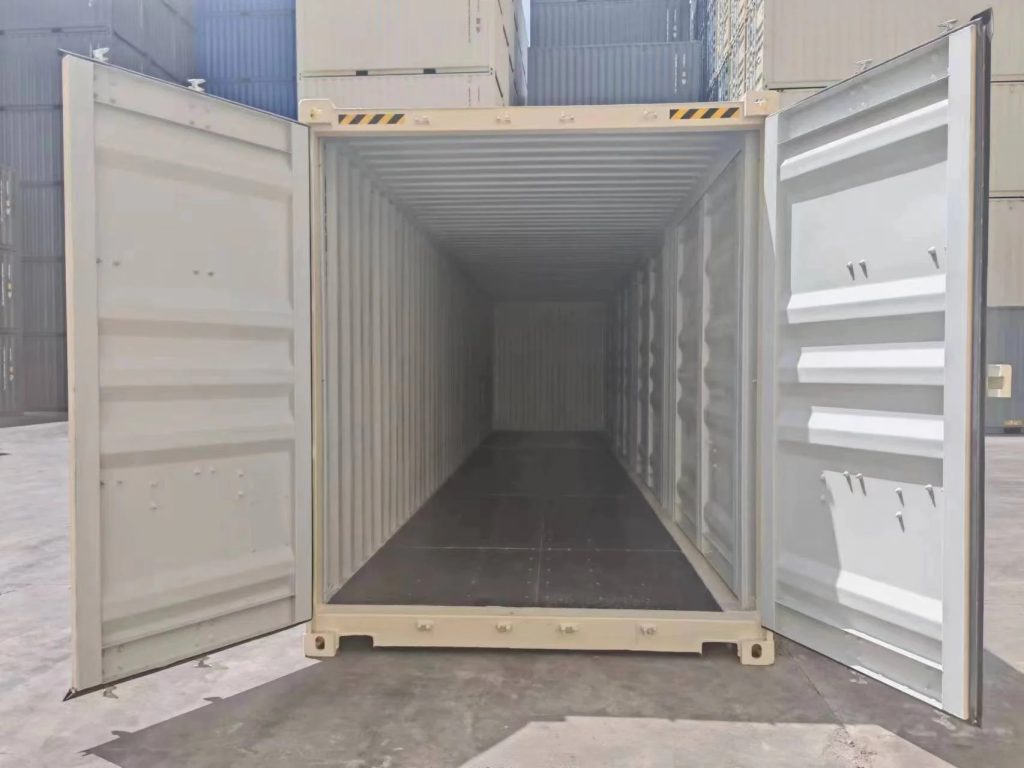10 Shipping Container Supplier Tips All Experts Recommend
The Ultimate Guide to Shipping Container Suppliers
In a progressively globalized world, shipping containers play an essential function in the movement of items throughout borders. As services broaden and the e-commerce sector experiences exponential growth, the need for shipping containers continues to increase. As a result, understanding the landscape of shipping container suppliers is essential for organizations, entrepreneurs, and people alike. This guide looks into the intricacies of shipping container suppliers, helping you navigate your alternatives and make educated acquiring decisions.
What Is a Shipping Container?
A shipping container is a standardized, robust vessel developed for the transport of items. Generally made of steel, these containers can withstand extreme weather condition conditions and misuse during transit. They are available in various sizes, commonly 20-foot and 40-foot lengths, with some specialized containers readily available for particular cargo requirements.
Kinds Of Shipping Containers
Before diving into supplier alternatives, it's crucial to acquaint yourself with the different types of shipping containers readily available. Here's a breakdown:
Container Type
Description
Typical Uses
Standard Dry Container
A fundamental container used for general cargo, geared up with a tough top and no ventilation.
Transporting fabrics, electronic devices, and toys
Refrigerated Container
Likewise known as a reefer, this container maintains temperature control for perishable goods.
Shipping food, pharmaceuticals, and other perishables
Open Top Container
Designed for bulky and oversized cargo that can be loaded from the top.
Carrying heavy machinery or construction materials
Flat Rack Container
A platform container without sides, suitable for heavy loads or cargo that needs to be loaded from the top or sides.
Shipping automobiles, boats, and equipment
High Cube Container
Similar to basic containers however taller, offering an additional 1 foot of height.
Perfect for large cargo or items that require additional vertical area
Key Considerations When Choosing a Shipping Container Supplier
When choosing a supplier, businesses must examine a number of critical factors to ensure they discover the right suitable for their requirements:
- Reputation and Reliability: Research providers, checked out reviews, and inspect scores to discover a respectable company.
- Item Variety: Suppliers offering a vast array of container types can much better satisfy different shipping requirements.
- Pricing Structure: Compare prices, shipping costs, and any additional fees to find the finest offer.
- Delivery Options: Assess the supplier's delivery abilities, consisting of timelines and geographical reach.
- Condition of Containers: Check whether the supplier uses new, used, or refurbished containers, and their condition.
- Client Support: A reliable supplier needs to provide responsive client service and support throughout the acquiring procedure.
Leading Shipping Container Suppliers
Below is a table of some popular shipping container suppliers in the market. This list is not exhaustive, however it works as a beginning point for services looking for providers.
Supplier Name
Place
Specialty
Site
ContainerDirect
Nationwide (USA)
New and used containers
Sea Box
Numerous Locations
Custom and specialized containers
Triton International
Worldwide
Lease and sale of containers
PODS
USA and Canada
Mobile storage and moving solutions
Conexwest
Nationwide (USA)
Variety of container modifications
Often Asked Questions (FAQ)
1. What is COG Containers LTD for shipping containers?
The price of a shipping container differs based on size and condition. Normally, new containers can cost between ₤ 2,500 to ₤ 5,000, while used containers might range from ₤ 1,500 to ₤ 3,000. Specialized containers, like refrigerated ones, can be significantly more expensive.
2. How do I identify what size shipping container I need?
The size of the container you need depends on the volume and kind of goods you prepare to deliver. It's vital to determine your cargo and speak with the supplier to determine which container fits your requirements.
3. Can I rent a shipping container?
Yes, numerous suppliers offer rental options, which can be an outstanding option for short-term needs or if you doubt about purchasing a container outright.
4. What are the delivery alternatives for shipping containers?
Delivery alternatives vary by supplier, but numerous deal delivery services straight to your location for an additional charge. Make sure to ask about delivery times and geographical coverage.
5. Are shipping containers long lasting?
Yes, shipping containers are built from Corten steel, making them highly long lasting and weather-resistant. They are created to withstand the maritime environment and misuse throughout transport.
As shipping containers continue to be a dominant force in the logistics and freight market, picking the best supplier is vital for enhancing shipping operations. By understanding the types of containers offered, weighing key considerations, and considering the leading providers detailed in this guide, organizations can browse the buying process with confidence. Whether you're a little business aiming to deliver in your area or a big corporation shipping worldwide, the ideal shipping container supplier can assist fulfill your logistics needs effectively and successfully.
